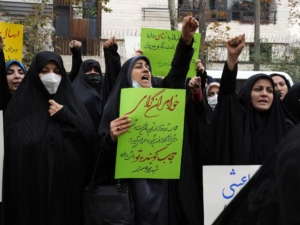In a significant development, Secretary of Defense Pete Hegseth concluded his first official visit to Asia by strengthening ties with Japan, affirming the Trump administration’s commitment to bolstering the military alliance to counter an increasingly assertive China. During his meeting with his Japanese counterpart in Tokyo, Mr. Hegseth pledged to accelerate plans, originated under the Biden administration, for a new joint U.S.-Japan military command in Tokyo, described as a “war-fighting headquarters,” without specifying the operational timeline. He also announced an increase in joint military exercises, particularly in the Okinawa Islands near Taiwan, a self-governed island that China claims and has threatened to seize by force. Mr. Hegseth’s visit to Japan followed his trip to the Philippines, where he sought to reassure U.S. allies about the administration’s dedication to the region, amidst concerns over the U.S. breaking with traditional allies in Europe to negotiate potential concessions to Russia regarding its territorial seizure in Ukraine. The meeting with Japanese officials, including Defense Minister Gen Nakatani, saw Mr. Hegseth adopt a firm stance, declaring that the U.S. and Japan would work together to ensure “peace through strength” to deter China. Despite the positive notes, Mr. Hegseth faced scrutiny regarding his use of a Signal chat app for sharing military information, which included a journalist. His visit also symbolically marked the 80th anniversary of the WWII battle on Iwo Jima with a ceremony, highlighting the evolution from wartime adversaries to close allies, at a time Japan perceives the security environment as its most challenging since 1945. Mr. Nakatani briefed Mr. Hegseth on Japan’s pre-Trump administration plan to double defense and security spending by 2027, though discussions on further spending increases or contributions to the U.S. military presence in Japan were not on the table. US officials expressed satisfaction with the talks, alleviating concerns about the Trump administration’s commitment to previous administrations’ promises. Agreement on the joint command, a project valued at over $1 billion, was a critical outcome, contrary to earlier reports of its potential cancellation under the Trump administration’s cost-cutting measures. Mr. Hegseth praised Japan as a “model ally,” underlining mutual confidence in Japan’s ability to determine its necessary military capabilities. This level of agreement reflects Japan’s shift away from its post-war pacifism, driven by China’s growing military presence in the region and North Korea’s nuclear expansion. Prime Minister Shigeru Ishiba has advocated for Japan to become a more substantial military ally of the U.S., and analysts note a convergence of interests between Trump’s and Ishiba’s objectives for Japan’s increased military engagement.
Source: https://www.nytimes.com/2025/03/30/world/asia/hegseth-japan-military.html




